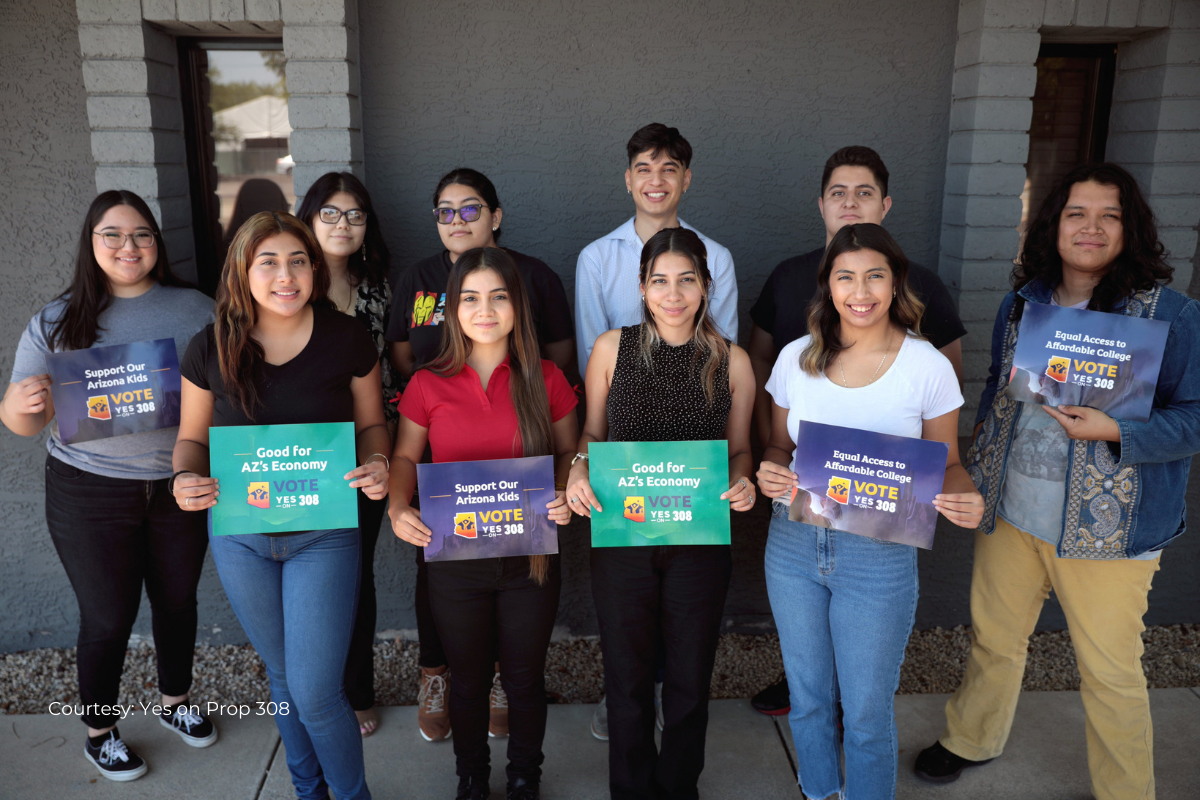
The Top 5 Things You Need to Know about What’s Next for Prop 308
Now that Arizona voters have passed Proposition 308, Dreamers and undocumented students can access in-state tuition at Arizona public universities and community colleges. Prop 308 ensures that any student who attended an Arizona high school for two years (public, private or homeschool) and who graduated (with a diploma or GED) qualifies for in-state tuition at one of these institutions.
The passage of Prop 308 will make going to college more possible for thousands of Arizona students and will help the state move closer to meeting our Achieve60AZ education attainment goal.
As Prop 308 is implemented, there are a number of key things to know, including who is eligible, when students can begin accessing in-state tuition, what other aid they are able to access and what barriers remain for DACA and undocumented students to afford their postsecondary education.
Here’s what you need to know about Prop 308’s implementation:
1. DACA and undocumented students can begin accessing in-state tuition now.
Prop 308 became effective on Dec. 5 when the official election canvas was completed. In-state tuition rates can be accessed for any classes at the community colleges starting after that date or for the universities starting in the Spring 2023 semester.
Recently the Arizona Board of Regents and Maricopa Community Colleges have published information about eligibility for DACA and undocumented students to receive in-state tuition. Read their FAQs below:
2. DACA and undocumented students may be able to access other scholarships and need-based aid.
Prop 308 allows DACA and undocumented students to access local scholarships at community colleges and university-funded financial aid. Students still must meet any other requirements for the aid they are seeking.
While these are huge wins for our students, there’s still work to be done to remove other barriers for DACA and undocumented students to access other financial aid.
3. DACA and undocumented students are not eligible for federal student aid, including grants and federal student loans.
DACA and undocumented students can’t access federal aid to pay for college. These students are not eligible for federal loans or for grants, including the Pell Grant which helps approximately one-third of undergraduates across the country pay for their college education.
4. Additionally, undocumented students and DACA students without a social security number are unable to complete the FAFSA (Free Application for Federal Student Aid).
The FAFSA is often used as part of the eligibility process for other scholarships or financial aid at the state or college level. When students cannot complete the FAFSA, they are limited from being considered for these other scholarships or grants that could help them pay for their tuition costs.
It’s important to note that DACA students with a social security number can complete the FAFSA, but are not eligible for financial aid.
5. DACA and undocumented students are not eligible for the Arizona Promise Program.
While DACA and undocumented students are now able to access other scholarships and aid at the institutional level, they are not eligible for the Arizona Promise Scholarship program, which is the state’s only financial aid program. The Arizona Promise Program was created in 2021 to provide financial aid to help low-income Arizona students afford tuition at one of the state universities. The scholarship is available to Arizona students that have a minimum 2.5 GPA and are admitted and enroll in a state university. However, the Scholarship is inaccessible to DACA and undocumented students because to qualify, students must complete the FAFSA and be Pell Grant eligible, which they are not able to do.
How Can You Help?
You can help by sharing the information about the passage of Prop 308 with students, families, school counselors, high school principals and college access professionals. They need to know that this opportunity is available for their DACA and undocumented students and how the initiative will work.
You can speak with your legislators about how the barriers might be removed for DACA and undocumented students to access the Arizona Promise Program. You can also reach out to your Congressional representatives about what can be done to help DACA and undocumented students access the FAFSA and federal financial aid.
